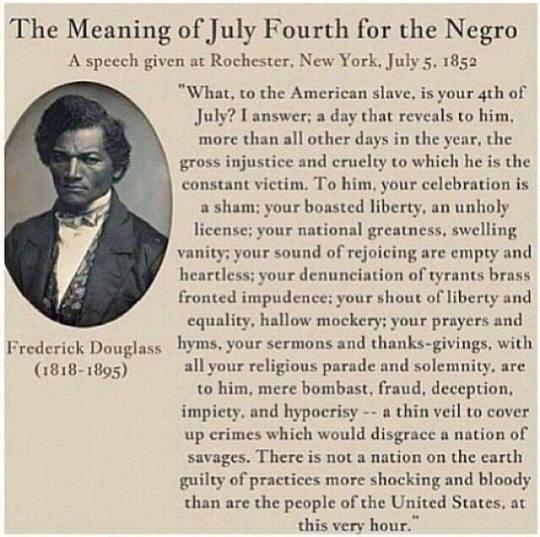#african civilization
Explore tagged Tumblr posts
Text
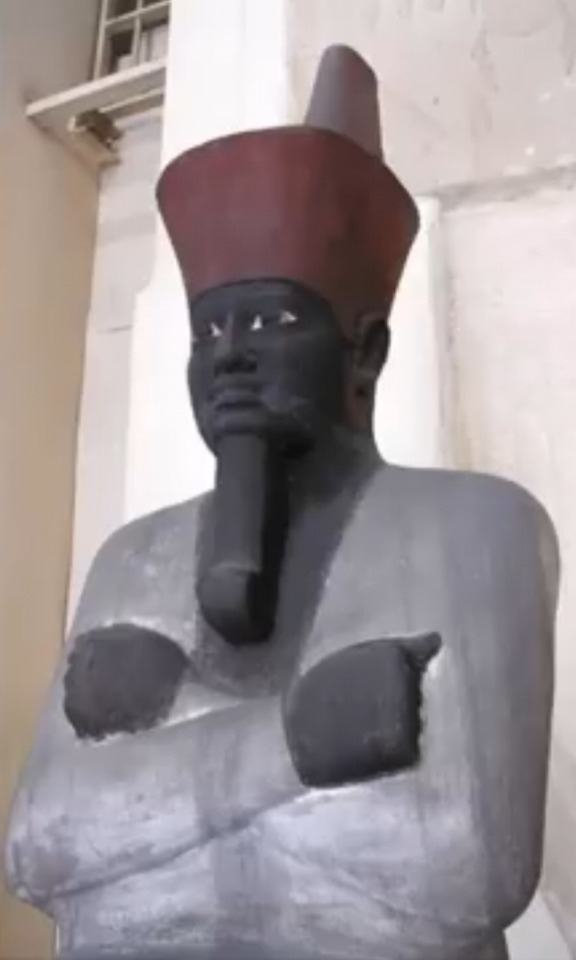
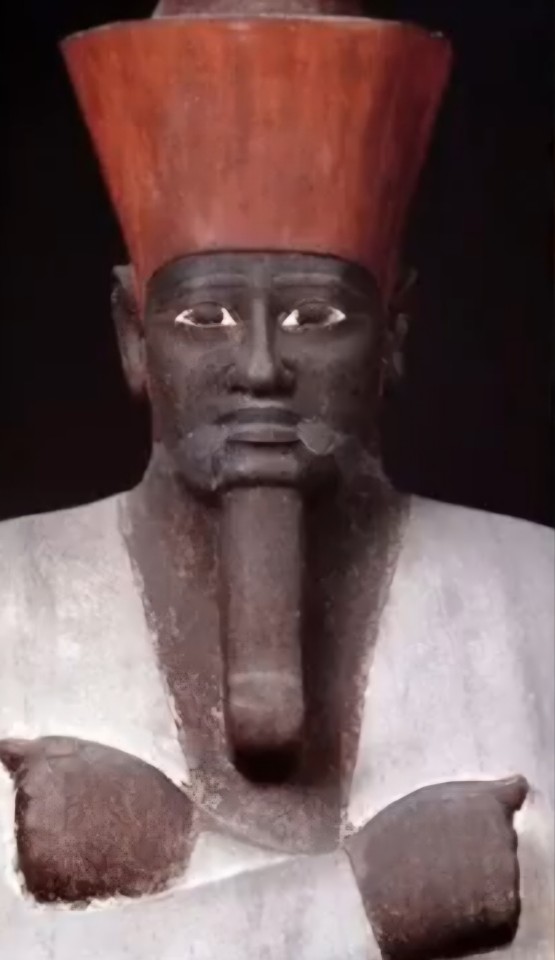
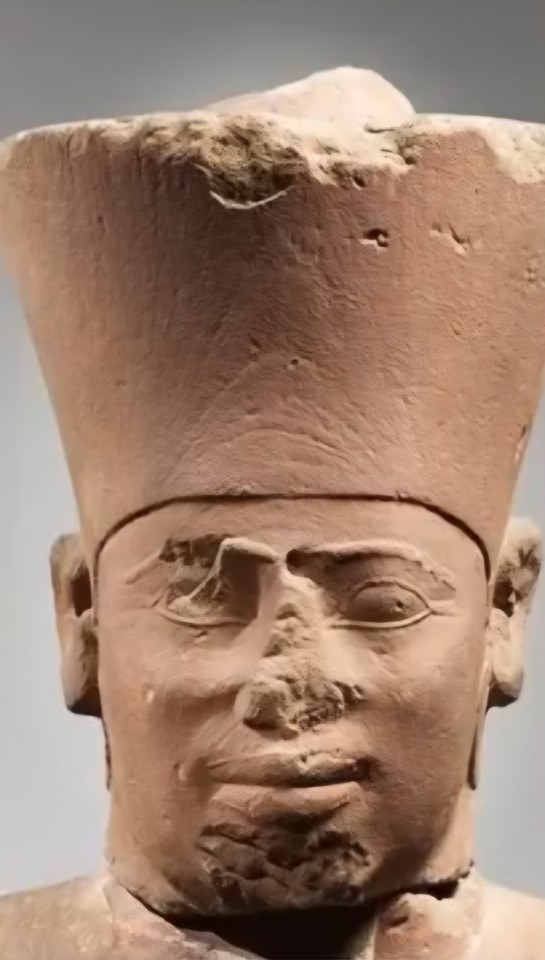
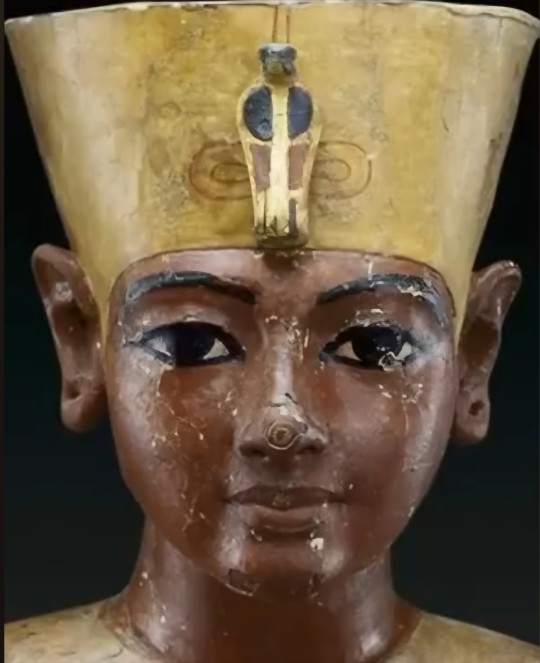
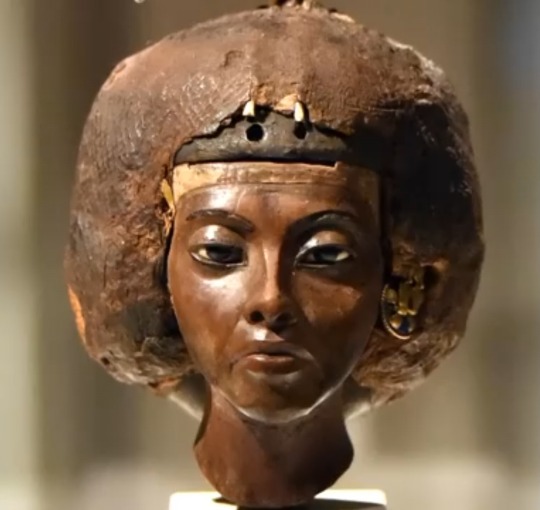
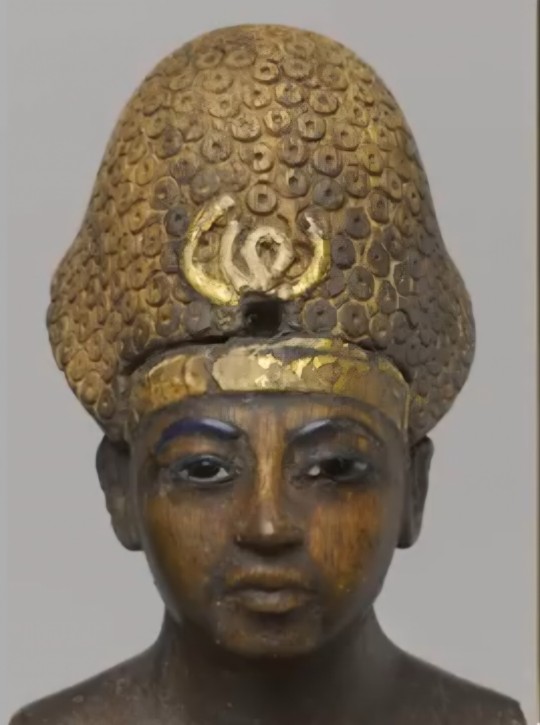
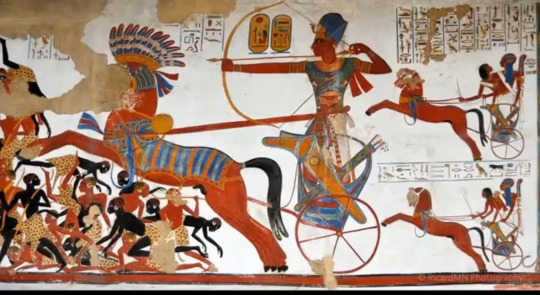
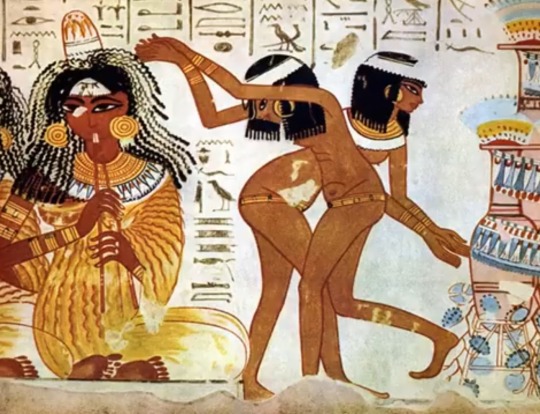
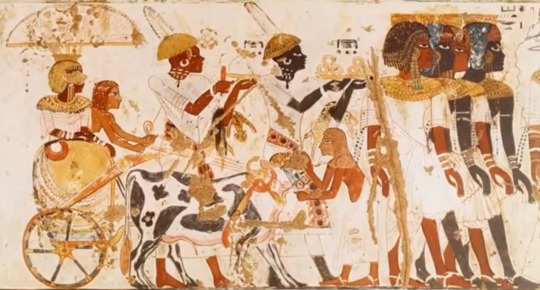
Ancient Egyptians were African: Debunking Myths and Addressing Anti-African Narratives
For centuries, the identity of the ancient Egyptians has been hotly debated, with Eurocentric and anti-African narratives attempting to erase their African origins. Claims that ancient Egyptians were not African but rather European, Middle Eastern, or Mediterranean in origin are not only historically unfounded but also rooted in racism, colonialism, and a deliberate effort to disconnect African people from their cultural and historical achievements.
This analysis will explore why these claims are nonsensical, delve into their anti-African roots, and demonstrate that ancient Egyptians were fundamentally African, with no credible links to Europe or the Mediterranean as their cultural or racial origin.
1. The Geographic Reality: Egypt is in Africa
Africa’s Geography Is Non-Negotiable
Egypt is located in the northeastern corner of Africa, bordered by Sudan to the south, Libya to the west, and the Sinai Peninsula to the northeast. It is geographically part of the African continent.
The Nile River, which was the lifeline of ancient Egyptian civilization, flows through other African regions, linking Egypt with its sub-Saharan neighbours.
Cultural Context in African History
In ancient times, Egypt was deeply connected to the rest of the African continent. Trade, migrations, and cultural exchanges with Nubia, Kush, and other African regions were foundational to Egypt’s development.
The claim that Egypt is somehow "separate" from Africa is a modern fabrication rooted in Eurocentrism.
Garveyite Perspective
Marcus Garvey emphasized the unity of African peoples and their shared cultural heritage. To detach Egypt from Africa is to deny the historical contributions of African civilizations to global history.
2. Physical Anthropology: African Traits of the Ancient Egyptians
Skeletal and Cranial Studies
Anthropological studies of ancient Egyptian remains consistently demonstrate features characteristic of indigenous African populations, including cranial structures, nasal cavities, and other markers commonly found in East Africans and Nubians.
Mummified remains, including DNA analysis, confirm that the ancient Egyptian population had genetic ties to sub-Saharan Africa, particularly along the Nile corridor.
Depictions of Themselves
Ancient Egyptians depicted themselves in artwork with dark brown skin tones, distinct African features, and hairstyles like braids and cornrows—styles still prevalent in African communities today.
Garveyite Perspective
Garvey believed in reclaiming African identity and history. These physical and cultural markers of the ancient Egyptians reaffirmed their African roots, undermining attempts to Europeanize or de-Africanize their identity.
3. Cultural Continuity With Other African Civilizations
Connections with Nubia and Kush
Nubia (modern-day Sudan) was a close cultural and political partner of ancient Egypt. The Nubians shared linguistic, religious, and artistic traditions with the Egyptians.
Egypt’s earliest dynasties were heavily influenced by Nubian traditions, and Nubians often ruled Egypt (e.g., the 25th Dynasty).
Shared Religious and Spiritual Practices
Many ancient Egyptian religious beliefs—such as ancestor worship, reverence for the Nile, and solar worship—align with other African spiritual systems. These traditions reflect an African worldview, not a Mediterranean or European one.
Garveyite Perspective
Garvey emphasized Pan-African unity. Recognizing Egypt’s connections with other African civilizations strengthens the narrative of African greatness and shared cultural heritage.
4. Why the "Non-African Egypt" Narrative Exists
Colonialism and White Supremacy
European colonizers sought to portray Africa as uncivilized and incapable of high achievement. To justify slavery and colonialism, they disconnected Egypt from Africa to present African peoples as inferior.
Napoleon’s invasion of Egypt in 1798 marked a turning point where Europeans claimed Egyptian history as their own, deliberately misinterpreting evidence to align with white supremacist ideologies.
Pseudo-History and Egyptomania
During the 19th and 20th centuries, Western scholars promoted ideas that the Egyptians were white or Mediterranean, often citing flawed archaeological interpretations or cherry-picked data.
Popular culture reinforced these ideas, portraying ancient Egyptians as white in films, art, and media.
Anti-Blackness and Cultural Erasure
The denial of Egypt’s African identity is part of a broader trend of erasing Black contributions to history. By detaching Egypt from Africa, these narratives deprive African people of one of their most significant cultural legacies.
Garveyite Perspective
Garvey fought against colonial narratives that demeaned African peoples and erased their history. He would view the de-Africanization of Egypt as a deliberate attack on African pride and identity.
5. Ancient Egyptians Had No Links to Europeans or the Mediterranean
Minimal Contact With Europe
For most of its history, Egypt had little to no interaction with Europe. It was geographically and culturally oriented toward Africa and the Near East.
When Greeks and Romans did arrive in Egypt (around the 4th century BCE), they came as invaders or occupiers, not contributors to its development.
Distinct Cultural Traits
Ancient Egyptian art, language (hieroglyphics), and architecture show no foundational influence from Europe. These cultural markers are distinctly African and predate European civilizations like Greece and Rome.
Genetic Evidence
Studies of ancient Egyptian DNA reveal minimal genetic overlap with Europeans during the Pharaonic period. Most genetic links are with sub-Saharan and East African populations.
Garveyite Perspective
Garvey believed that African civilizations existed independently of Europe. The idea that Egypt is tied to European history is a colonial fantasy designed to undermine Africa’s achievements.
6. The Mediterranean Myth
Misrepresentation of the Mediterranean
The term “Mediterranean” is often misused to imply European influence in Egypt. While Egypt did trade with Mediterranean civilizations, this occurred primarily during the Late Period, long after its cultural foundations were established.
The Mediterranean was a crossroads for African, Asian, and European interaction. However, Egypt’s primary cultural influences were African, not Mediterranean.
Linguistic Evidence
The ancient Egyptian language is part of the Afroasiatic language family, connecting it to other African languages like Hausa, Berber, and Amharic. This linguistic link further cements Egypt’s African identity.
Garveyite Perspective
Garvey’s vision of African pride and independence rejects the Eurocentric framing of history. The Mediterranean myth is another attempt to obscure the truth of Egypt’s African heritage.
7. Why It Matters: Reclaiming African History
African Pride and Unity
Recognizing Egypt as an African civilization inspires pride in African heritage and counters centuries of colonial propaganda.
Egypt’s achievements—pyramids, medicine, mathematics, and governance—showcase the genius of African people.
Combatting Racism and Erasure
By reclaiming Egypt as African, we challenge the racist narratives that have historically dehumanized Black people and undermined their contributions to global history.
Garveyite Perspective
Garvey’s Pan-Africanism is rooted in the belief that African people must reclaim their history, culture, and identity to achieve true liberation. Egypt is a cornerstone of that history.
Conclusion: Ancient Egypt Was, Is, and Will Always Be African
The argument that ancient Egyptians were not African is nonsensical, unscientific, and rooted in anti-African bias. Egypt is geographically, culturally, and historically African, with no foundational ties to Europe or the Mediterranean.
From a Garveyite perspective, reclaiming Egypt as African is essential for restoring pride, unity, and identity among African people worldwide. As Marcus Garvey proclaimed:
"Africa for the Africans, at home and abroad."
It’s time to honour Egypt as part of Africa’s rich legacy and reject the colonial lies that seek to divide and diminish Black history.
#black people#black history#black#black tumblr#blacktumblr#pan africanism#black conscious#africa#black power#black empowering#ancient egypt#african history#african civilization#marcus garvey#african identity#black community#black pride#black diaspora#african diaspora#anti colonization#anti blackness#white supremacy#cultural reclamation#african people#african culture
31 notes
·
View notes
Text

#books#education#black history#blackherstory#study#critical reading#moors#moorsinspain#thesagittarianmind#black power#black liberation#blackcivilization#african technology#African civilization#african science#african spirituality#african power#african studies#african literature#black men#black women#thesagitt
49 notes
·
View notes
Text

Tems
#Melanin#Tems#Nigerian#Nigerian Singer#African#African Music#Continental Music#Tems New Music#Black Panther Party For Self Defense#Afrobeats#Neo Soul#New Music#Neo Colonialists#Imperialists#Unity#Black Unity#Unity Among Ghetto Groups#Caribbean#African Civilization#Black Love#Amos Wilson#Frances Cress Welsing#Neely Fuller Jr#Joy Degruy#Racism#White Supremacy#Eugenics#70s music#United Africa
3 notes
·
View notes
Text
When the World Was Black: The Untold History of the World's First Civilizations, Part One: Prehistoric Cultures - Supreme Understanding
Download for FREE from Z-LIB

In this book, you'll learn about the history of Black people. I don't mean the history you typically learn in school, which most likely began with slavery and ended with the Civil Rights Movement. we're talking about Black history BEFORE that. Long before that.
In this book, we've covered over 200,000 years of Black history. For many of us, that sounds strange. We can't even imagine what the past of Black people was like before the slave trade, much less imagine that such a history goes back 200,000 years or more.
Download for FREE from Z-LIB
#When the World Was Black: The Untold History of the World's First Civilizations#Part One: Prehistoric Cultures#Africa#African Civilization#world history#African History#Black History
42 notes
·
View notes
Text
3 notes
·
View notes
Text
Leftist antisemitism is a symptom - American Jews and the Illiberal Left
TLDR: I think we would be wise to stop regarding leftist antisemitism only in its own context and habitually recognize it is a part of a larger issue, the rise of the illiberal left.
Why are Jews are the most reliable supporters of Liberal policies and politicians in modern American history?
Haviv Rettig Gur seems to suggest that Jews in the US, recognizing that Liberal values resulted in their (imperfect but historic) emancipation in the US, became perhaps the most Liberal people ever. They understood that US Liberal values were what made Jews relatively safe in the US, and offered them opportunities which had been denied to them everywhere else.
When previously did a head of state speak to Jews the way George Washington did?
Gur suggests that this is why American Jews have historically been so invested in the struggle of black folks in the US. When I say invested, I'm talking about facts like these:
- Henry Moscowitz was one of the founders of the NAACP.
- Kivie Kaplan, a vice-chairman of the Union of American Hebrew Congregations (now called the Union for Reform Judaism), served as the national president of the NAACP from 1966 to 1975.
- From 1910 to 1940, more than 2,000 primary and secondary schools and 20 Black colleges (including Howard, Dillard and Fisk universities) were established in whole or in part by contributions from Jewish philanthropist Julius Rosenwald. At the height of the so-called "Rosenwald schools," nearly 40 percent of Black people in the south were educated at one of these institutions.
- Jews made up half of the young people who participated in the Mississippi Freedom Summer of 1964.
- Leaders of the Reform Movement were arrested with Rev. Dr. Martin Luther King, Jr. in St. Augustine, Florida in 1964 after a challenge to racial segregation in public accommodations.
- Rabbi Abraham Joshua Heschel marched arm-in-arm with Dr. King in his 1965 March on Selma.
- The Civil Rights Act of 1964 and the Voting Rights Act of 1965 were drafted in the conference room of Religious Action Center of Reform Judaism, under the aegis of the Leadership Conference, which for decades was located in the RAC's building.
When I was a child and asked my mother why Jews seemed overwhelmingly to be Democrats, I was told "because of FDR and the Civil Rights movement." That's not wrong, in Gur's framing, but perhaps a more shallow response than the question deserves.
In Gur's framing, US Jews realized that the promises of Liberalism, over and over, no matter how much they delivered for other peoples, did not deliver for black Americans.
Gur suggests that US Jews worked to see that change for their black co-citizens because if American Liberalism didn't deliver for black Americans what it appeared to promise to all Americans, the sense of safety, security, and belonging which Jews felt in the US was an illusion.
US Jews believed that we had common cause with non-Jewish American Liberals. We thought non-Jewish liberals believed what we believed about universal civil rights, pluralism, enlightenment values and enlightenment reason. When Jews saw the "In this House We Believe" signs on our neighbors' lawns, We felt comforted because those beliefs are also our beliefs.
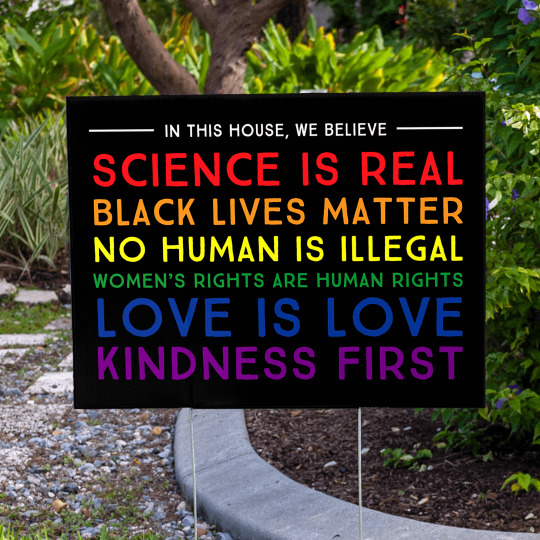
We thought, for instance, that our non-Jewish friends agreed that Liberal democracies were better for human rights than any form of government in the history of human societies. We thought they agreed that religious, racial, and ethnic intolerance were social ills which needed to be fought with information. We thought they valued data, reason, and reliable sources.
Since 10/7/23, we've been learning that we were mistaken. We've seen gentiles who we thought shared our values seem to discard those values.
We saw college educated friends share antisemitic (and alarmingly familiar) conspiracy theories about Israeli puppetry of US politics and the return of Nazi and Soviet antisemitic slogans/images.
We've seen highly educated "Liberals" preach ahistoric nonsense denying that the Jewish people are from the Levant and willfully ignoring the huge swaths of historical fact which don't support their favored narrative.
We've seen friends rage against "globalists" and "Zionists," when what they mean is 'Jews'.
We've seen people who we thought were allies against all forms of racism justify their racism towards Jews as righteous through specious reasoning like 'I don't hate Jews, just the 97% of Jews who believe that Jews should have self-determination in their homeland.'
We've been told that we cannot ask them to temper their use of antisemitic tropes, because doing so "weaponizes" concerns about antisemitism to obstruct them from their righteous crusade against the most evil nation on earth...which happens to be the only Jewish nation.
Despite this, about 80% of Jewish voters voted for Harris over Trump.
I think US Jews will continue to be Liberals, because Liberal values are dear to us and aligned with our values as Jews, as a historically oppressed minority, and as Americans who see more clearly than some others the gap between the promise of American liberalism and its long-delayed universal delivery.
The problem, I think, is in how many of our former friends simply aren't Liberals any longer.
I think Jews in the US need to spend a good deal more time scrutinizing the illiberal left.
Nine days after the attacks of 10/7/23, Jonathan Chait wrote:
Writers like Michelle Goldberg, Julia Ioffe, and my colleague Eric Levitz, all of whom rank among the writers I most admire, have written anguished columns about the alienation of Jewish progressives from the far left. I think all their points are totally correct. But I find the frame of their response too narrow. They are treating apologias for Hamas as a factually or logically flawed application of left-wing ideals. I believe, to the contrary, that Hamas defenders are applying their own principles correctly. The problem is the principles themselves.
...
Liberals believe political rights are universal. Basic principles like democracy, free speech, and human rights apply equally to all people, without regard to the content of their political values. (This of course very much includes Palestinians, who deserve the same rights as Jews or any other people, and whose humanity is habitually ignored by Israeli conservatives and their American allies.) A liberal would abhor the use of political violence or repression, however evil the targets.
...
The illiberal left believes treating everybody equally, when the power is so unequal, merely serves to maintain existing structures of power. It follows from their critique that the legitimacy of a tactic can only be assessed with reference to whether it is being used by the oppressor or the oppressed. Is it okay for, say, a mob of protesters to shout down a lecture? Liberals would say no. Illiberal leftists would need to know who was the speaker and who was the mob before they could answer.
...
One observation I’ve shared with many analysts well to my left is that the debate over this illiberalism and the social norms it has spawned — demands for deference in the name of allyship, describing opposing ideas as a form of harm, and so on — has tracked an older debate within the left over communism. Communism provided real-world evidence of how an ideology that denies political rights to anybody deemed to be the oppressor laid the theoretical groundwork for repression and murder.
There have been conscious echoes of this old divide in the current dispute over Hamas. The left-wing historian Gabriel Winant has a column in Dissent urging progressives not to mourn dead Israeli civilians because that sentiment will be used to advance the Zionist project. Winant sounds eerily like an old communist fellow traveler explaining that the murders of the kulaks or the Hungarian nationalists are the necessary price of defending the revolution. “The impulse, repeatedly called ‘humane’ over the past week, to find peace by acknowledging equally the losses on all sides rests on a fantasy that mourning can be depoliticized,” he argues, calling such soft-minded sentiment “a new Red Scare.” Making the perfect omelette always requires some broken eggs in the form of innocent people who made the historical error of belonging to, or perhaps being born into, an enemy class.
But more than three decades have passed since the Soviet Union existed or China’s government was recognizably Marxist. And so the liberal warning about the threat of left-wing illiberalism seemed abstract and bloodless. On October 7, it suddenly became bloody and concrete. It didn’t happen here, of course. The shock of it was that many leftists revealed just how far they would be willing to follow their principles. “People have repeated over and over again over the last few days that you ‘cannot tell Palestinians how to resist,’” notes (without contradicting the sentiment) Arielle Angel, editor-in-chief of the left-wing Jewish Currents. Concepts like this, treating the self-appointed representative of any oppressed group as beyond criticism, are banal on the left. Yet for some progressive Jews, it is shocking to see it extended to the slaughter of babies, even though that is its logical endpoint. The radical rhetoric of decolonization, with its glaring absence of any limiting principles, was not just a rhetorical cover to bully some hapless school administrator into changing the curriculum. Phrases like “by any means necessary” were not just figures of speech. Any means included any means, very much including murder.
Both Julia Ioffe and Eric Levitz have pointed out that decolonization logic ignores the fact that half of Israel’s Jewish population does not have European origins and came to Israel after suffering the same ethnic cleansing as the Palestinians. This is correct. But what if it weren’t? If every Israeli Jew descended from Ashkenazi stock, would it be okay to shoot their babies?
The problem is much greater than leftist antisemitism. The illiberal left has become nearly as great a threat to Liberalism as the far right.
It is often the case that a movement’s treatment of Jews serves as a broader indicator of its health. It’s not an accident that the Republican Party has become more attractive to antisemites as it has grown more paranoid and authoritarian. What the far left revealed about its disposition toward Jews is not just a warning for the Jews but a warning for all progressives who care about democracy and humanity. The pro-Hamas left is not merely indicating an indifference toward Jews. It is revealing the illiberal left’s inherent cruelty, repression, and inhumanity.
I'm annoyed that it is has taken me so long to catch on and alarmed by the implications.
I am, however, very proud of my 14yo, who sums up her experience trying to respectfully disagree with leftists this way:
"They're allergic to nuance."
#civil rights movement#liberalism#US History#jewish history#jewish american history#american jews#Jumblr#african americans#Black Americans#Illiberal left#far left#leftist antisemitism#leftist antizionism
402 notes
·
View notes
Text

Black Periodicals: From the Great Migration through Black Power by Reveal Digital, is a transformative open access resource for librarians, faculty, and students engaging with Black history, social justice, and cultural studies.
Spanning over 75,000 pages of mid-20th-century periodicals, the collection amplifies the voices of Black Americans and their global counterparts. It features a wide range of materials, including women’s advocacy newsletters, labor union publications, and international periodicals from Africa, Europe, and the Caribbean. These resources illuminate connections between early 20th-century activism and the Civil Rights era and beyond.
Whether you're building a library collection, crafting a syllabus, or diving into research, this collection provides unparalleled access to the literature, politics, and culture that shaped a pivotal century.
Explore the collection.
#jstor#reveal digital#open access#resource#librarians#faculty#students#research#academic research#black history#social justice#cultural studies#african history#european history#caribbean history#civil rights
248 notes
·
View notes
Text
"South Carolina is preparing to put up its first individual statue for an African American on its Statehouse lawn, honoring a man who put on Confederate clothes in order to steal a slaveholder’s ship and sail his family and a dozen others to freedom during the Civil War.
But Robert Smalls isn’t just being honored for his audacious escape. He spent a decade in the US House, helped rewrite South Carolina’s constitution to allow Black men equality after the Civil War and then put up a valiant but doomed fight when racists returned to power and eliminated nearly all of the gains Smalls fought for.
State Rep. Jermaine Johnson can’t wait to bring his children to the Statehouse to finally see someone who is Black like them being honored.
“The man has done so many great things, it’s just a travesty he has not been honored until now. Heck, it’s also a travesty there isn’t some big Hollywood movie out there about his life,” said Johnson, a Democrat from a district just a few miles from the Statehouse.
The idea for a statue to Smalls has been percolating for years. But there was always quiet opposition preventing a bill from getting a hearing. That changed in 2024 as the proposal made it unanimously through the state House and Senate on the back of Republican Rep. Brandon Cox of Goose Creek.
“South Carolina is a great state. We’ve got a lot of history, good and bad. This is our good history,” Cox said.
What will the Robert Smalls memorial look like?
The bill created a special committee that has until January 15 to come up with a design, a location on the Statehouse lawn and the money to pay for whatever memorial they choose.
But supporters face a challenging question: What best honors Smalls?
If it’s just one statue, is it best to honor the steel-nerved ship pilot who waited for all the white crew to leave, then mimicked hand signals and whistle toots to get through Confederate checkpoints, while hoping Confederate soldiers didn’t notice a Black man under the hat in the pale moonlight in May 1862?
Or would a more fitting tribute to Smalls be to recognize the statesman who served in the South Carolina House and Senate and the US House after the Civil War? Smalls bought his master’s house in Beaufort in part with money made for turning the Confederate ship over to Union forces, then allowed the man’s penniless wife to live there when she was widowed.
Or is the elder Smalls who fought for education for all and to keep the gains African Americans made during the Civil War the man most worth publicly memorializing? Smalls would see a new constitution in 1895 wipe out African Americans’ right to vote. He was fired from his federal customs collector job in 1913 when then President Woodrow Wilson purged a large number of Black men out of government jobs.
Or would it be best to combine them all in some way? That’s how Republican Rep. Chip Campsen, an occasional ship pilot himself, sees honoring one of his favorite South Carolinians.
“The best way to sum up Robert Smalls’ life is it was a fight for freedom as a slave, as a pilot and as a statesman,” Campsen said."
-via AP, Octtober 23, 2024
#south carolina#united states#us politics#robert smalls#black history#black excellence#civil war#us history#memorial#african american history#good news#hope
353 notes
·
View notes
Text

For the ppl in the back!!
#black tumblr#black history#black literature#black excellence#black community#civil rights#black history is american history#civil rights movement#equality#equal rights#black lives matter#black pride#black people#equal#african slavery#american slavery#african american history#american history
2K notes
·
View notes
Text








#black voting rights#racial injustice#black civic engagement#voting obstacles#black history in america#civil rights struggles#suppression tactics#disenfranchisement history#african american resistance#anti black policies#voter registration barriers#black political power#jim crow era#Here are tags you might consider: black voter suppression#louisiana history#black literacy tests#voting rights act#jim crow laws#racial discrimination#black disenfranchisement#civil rights history#black empowerment#historical racism#grandfather clause#poll taxes#literacy tests
155 notes
·
View notes
Text

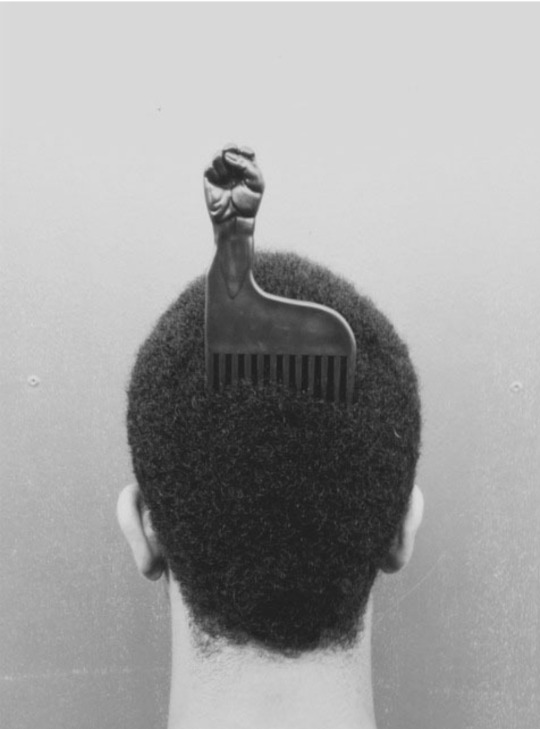
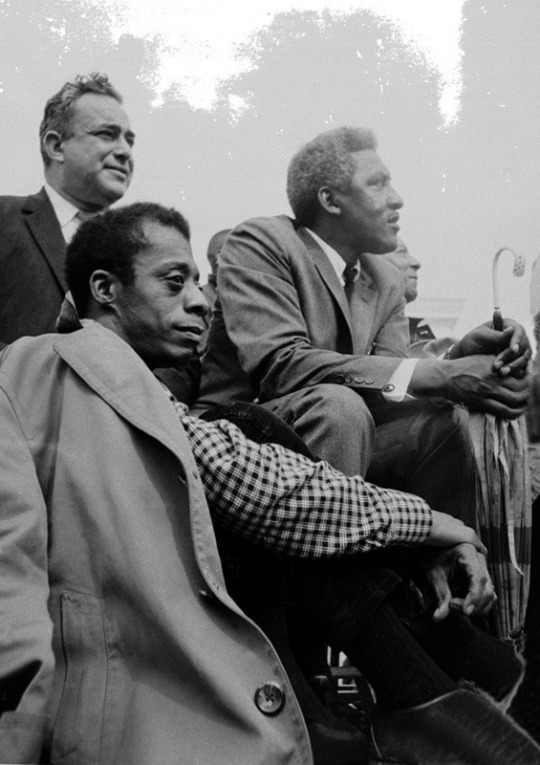



Civil Rights For All
All Black Lives Matter
#my collage#black gay men#gay#african american#lgbt#achillean#black gay magic#blackboyjoy#gay pride#lgbt pride#black pride#black men#civil rights#civil unrest#american dream#Americana#dark academia#black academia#black history#history#american history#bayard rustin#james baldwin#black gay
638 notes
·
View notes
Text

#books#education#african power#african civilization#african studies#black spirituality#african spirituality#study#critical reading#thesagittarianmind#black men#black power#black history#blackwomen
17 notes
·
View notes
Text

Photograph of Private Hubbard Pryor After Enlistment in 44th U.S. Colored Troops Infantry Regiment
Record Group 94: Records of the Adjutant General's OfficeSeries: Letters ReceivedFile Unit: Consolidated File for Colonel R. D. Mussey
This photograph was enclosed in a letter. The original caption reads: Private Hubbard Pryor After Enlistment in 44th USCT.
This is a sepia-toned photograph of an African-American soldier in a Union uniform. He stands at attention looking directly at the camera. His rifle is slung over his shoulder.
145 notes
·
View notes
Text
#project 2025#agenda 47#trumps project 2025#civil rights#mlk#politics#donald trump#2024 presidential election#blacklivesmatter#black lives matter#black liberation#vote blue#vote kamala#kamala 2024#kamala harris#kamala for president#democrats#republicans#black people#african american#racism#racial issues#right wing extremism#trump 2024#black women#racial injustice#fuck trump
101 notes
·
View notes
Text
0 notes
